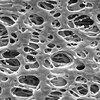MABN2285 Sigma-AldrichAnti-Prion Protein Antibody, clone POM1
Anti-Prion Protein, clone POM1, Cat. No. MABN2285, is a highly specific mouse monoclonal antibody that targets PrP and has been tested in ELISA, Immunofluorescence, Immunohistochemistry, Immunoprecipitation, and Western Blotting..
More>> Anti-Prion Protein, clone POM1, Cat. No. MABN2285, is a highly specific mouse monoclonal antibody that targets PrP and has been tested in ELISA, Immunofluorescence, Immunohistochemistry, Immunoprecipitation, and Western Blotting.. Less<<Produits recommandés
Aperçu
| Replacement Information |
|---|
Tableau de caractéristiques principal
| Species Reactivity | Key Applications | Host | Format | Antibody Type |
|---|---|---|---|---|
| H, M | IF, IHC, IP, WB | M | Purified | Monoclonal Antibody |
| References |
|---|
| Product Information | |
|---|---|
| Format | Purified |
| Presentation | Purified mouse monoclonal antibody IgG1 in buffer containing 0.1 M Tris-Glycine (pH 7.4), 150 mM NaCl with 0.05% sodium azide. |
| Quality Level | MQ100 |
| Physicochemical Information |
|---|
| Dimensions |
|---|
| Materials Information |
|---|
| Toxicological Information |
|---|
| Safety Information according to GHS |
|---|
| Safety Information |
|---|
| Storage and Shipping Information | |
|---|---|
| Storage Conditions | Stable for 1 year at 2-8°C from date of receipt. |
| Packaging Information | |
|---|---|
| Material Size | 100 μg |
| Transport Information |
|---|
| Supplemental Information |
|---|
| Specifications |
|---|
| Global Trade Item Number | |
|---|---|
| Référence | GTIN |
| MABN2285 | 04054839324345 |
Documentation
Anti-Prion Protein Antibody, clone POM1 Certificats d'analyse
| Titre | Numéro de lot |
|---|---|
| Anti-Prion Protein, clone POM1 - 3693114 | 3693114 |
| Anti-Prion Protein, clone POM1 - 3788638 | 3788638 |
| Anti-Prion Protein, clone POM1 - 3984677 | 3984677 |
| Anti-Prion Protein, clone POM1 - 4008836 | 4008836 |
| Anti-Prion Protein, clone POM1 - 4058998 | 4058998 |
| Anti-Prion Protein, clone POM1 - 4109617 | 4109617 |
| Anti-Prion Protein, clone POM1 Monoclonal Antibody | Q2981361 |
| Anti-Prion Protein, clone POM1 Monoclonal Antibody | Q2898863 |














